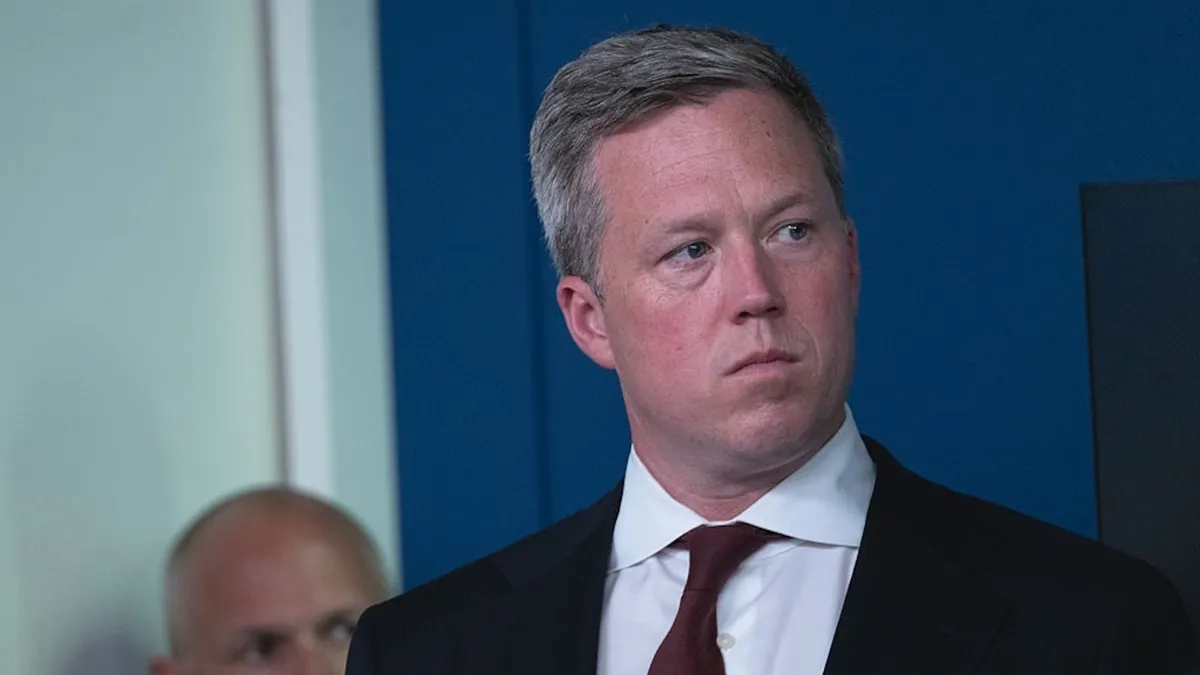
In a significant diplomatic move, United States Army Secretary Dan Driscoll held secret discussions on Monday with a Russian delegation in Abu Dhabi, United Arab Emirates. This meeting aimed to follow up on the recent talks held over the weekend in Geneva, which were focused on advancing the Ukraine peace process, according to a U.S. official who spoke to ABC News. Driscoll is scheduled to meet with the Russian delegation again on Tuesday, although the specific members of the Russian delegation remain undisclosed.
The undisclosed talks in Abu Dhabi come in the wake of discussions in Geneva between U.S. officials and Ukrainian representatives. These meetings are part of a new U.S. initiative to revitalize the peace process in Ukraine. The U.S. delegation in Geneva was led by Secretary of State Marco Rubio, Special Envoy Steve Witkoff, and Army Secretary Driscoll himself, highlighting the high-level involvement in these crucial negotiations.
ABC News reports that the original 28-point peace plan presented to Ukraine has now been refined into a 19-point peace plan. Notably, this revision excludes provisions on amnesty concerning acts committed during the conflict and places restrictions on the future size of Ukraine's military. In a speech on Monday evening, Ukrainian President Volodymyr Zelenskyy emphasized that further work is necessary to finalize the revised plan, underscoring the complexities involved in the negotiations.
Following the Geneva talks, Russian officials expressed concern, stating they had not received updates regarding the discussions or the revisions made to the peace plan. This gap in communication raises questions about the transparency and continuity of the diplomatic process. At the conclusion of the Geneva meetings, Rubio returned to the United States, while Driscoll proceeded to Abu Dhabi to further engage with the Russian delegation, as confirmed by the U.S. official.
Driscoll's involvement in these diplomatic efforts marks a notable shift in the traditional roles of military officials in such high-stakes negotiations. His active participation in the peace process follows a discussion between President Donald Trump and Vice President JD Vance two weeks prior, signaling the administration's commitment to a more hands-on approach. Although it is uncommon for a military secretary to engage in diplomatic talks, this strategy may be viewed favorably by both Russia and Ukraine.
Leading up to his trip to Ukraine, Driscoll engaged in discussions with Rubio and Witkoff, who have been instrumental in the ongoing peace negotiations between Ukraine and Russia. Prior to entering Ukraine, Driscoll and his team held additional consultations in Germany to prepare for their meetings. Accompanying Driscoll were senior military officials, including Gen. Randy George, chief of staff of the Army, Gen. Chris Donahue, commander of U.S. Army Europe and Africa, and Sgt. Major of the Army Michael Weimer.
While these senior military officers did not participate in the subsequent talks in Geneva or in the latest meetings with Russian officials in Abu Dhabi, their presence underscores the military's support of the diplomatic efforts. As the situation continues to evolve, the potential for more meetings between U.S. and Russian officials remains, although the timeline for such engagements is yet to be determined. The ongoing diplomatic efforts led by Driscoll and other U.S. officials could play a critical role in shaping the future of the Ukraine peace process.